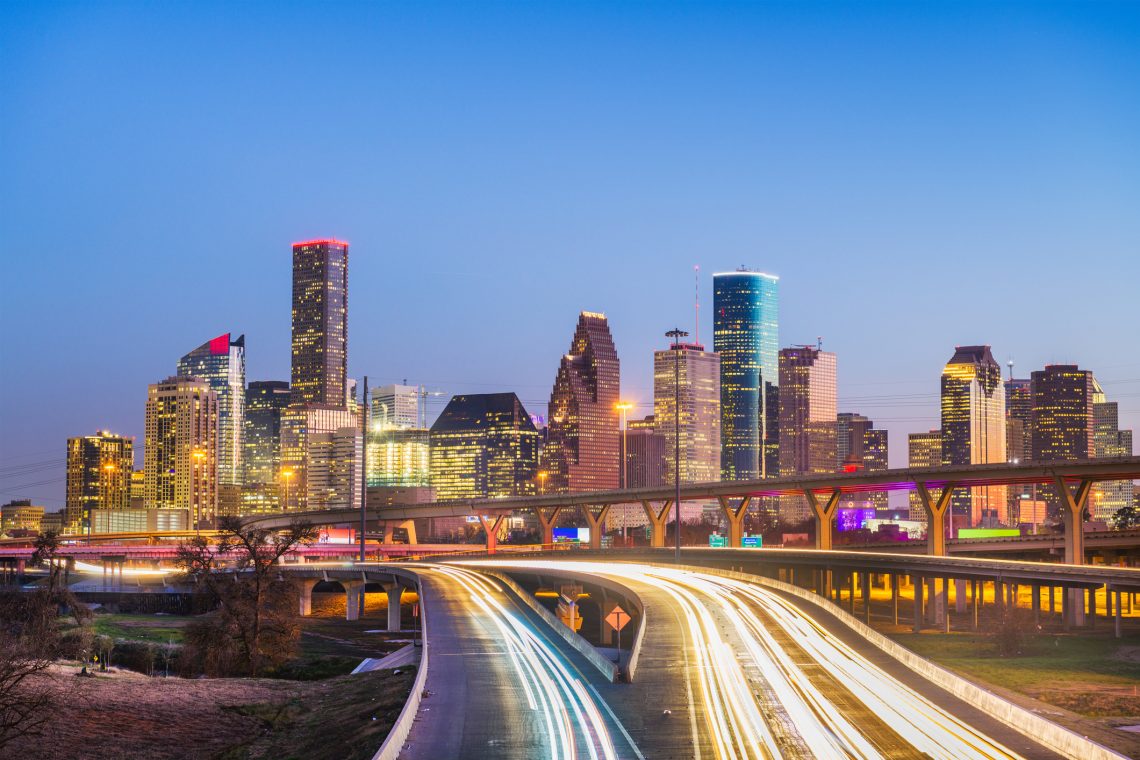
Houston lawmakers including the governor are backing a move to redo the city’s major roads. The massive project is a multiyear, multibillion dollar project that will create more roads and widen and expand the existing infrastructure. They are hoping these major changes will solve the gridlock problem.
Problems with Houston Roads & Freeways
The Houston roadway system is expansive with nine major radial freeways, three ring freeways and an additional outer ring that expands 180 miles. There are many problems with Houston roads, which is why it constantly ranks as a top city for traffic congestion, accidents, serious injuries and deaths from traffic fatalities. Due to the massive number of vehicles that travel on Houston roadways every day, the city is ranked ninth worst in the country for ozone pollution.
The Proposed Solution
The plan is to widen and rebuild approximately 25 miles of highways in the downtown area in a project dubbed the “Houston Highway Improvement Project (NHHIP).” Additionally, safety concerns will be addressed by straightening out some sections of the roadway and more bike and pedestrian connections will be added.
Criticism of the Project
Not all community members support the $7 billion project. They lament that many structures will be displaced due to the project, including:
- Four churches or other religious structures
- 1,067 multifamily units
- 331 businesses
- 168 homes
They say that most of those who will be impacted are minorities in low-income neighborhoods.
Additionally, they contend that the project will result in expensive maintenance costs in the future when the city is still trying to recover from hurricane damage and floods. They believe that the changes to the infrastructure will make the impact of future storms worse. During Hurricane Harvey, highways became major flood zones that prevented certain neighborhoods from being able to receive aid.
Critics argue that the focus should be on providing more efficient and affordable ways to transport residents across the city rather than on making the highways available for even more vehicles. They also lament that incentives are made for those who build the roads instead of support other forms of affordable transportation. A realignment in 2015 was found to be very effective and Metro Houston is voting on its plan for future expansion in late 2019. Proponents for these forms of transportation likely would have supported using lanes for a bus rapid transit system or a rail line, but instead I-45 will simply add new HOV lanes. The AAA estimates that it costs an average of $8,000 each year to own and operate a vehicle. Proponents believe investing in other forms of transportation will help improve citizens’ quality of life.
The Public Interest Research Group contends that the project is a source of needless and wasteful spending. It says that the project is not likely to solve the problems that it claims to solve and that the project will be even more expensive since the projected $7 billion cost does not cover the compensation that property owners must receive for the right to travel through their property.
Critics also point to the lack of success with a recent similar project when Katy Freeway was widened at a price tag of $2.2 billion. More vehicles flooded the new roadway, making the average commute time for about 85% of drivers increase.
Community meetings are scheduled across the city to educate residents on the risks and benefits of the project where community members will be able to address their concerns.
Status of the Project
The project dates back to 2002. The Texas Department of Transportation had a series of community meetings and has coordinated with transit agencies and local governments. This department prioritizes road transportation since estimates show that 94% of Texans rely on a vehicle as their primary form of transportation. Estimates are that traffic will increase in the area by 30% by 2040 while the city’s population is expected to double by 2050.
On July 26, 2019, the Houston-Galveston Area Council’s Transportation Policy Council approved making a down payment of $100 million to rebuild a portion of I-45 that extends from I-10 to North Loop 610.
Additionally, as cities across the state vie for dollars to address transportation issues, Houston does not want to lose out on billions of dollars.
The governor who had previously spoken out against highway expansion says that he supports moving forward with the proposal for I-45 expansion. He has instructed the city’s planning department to prioritize community concerns and make recommendations that will make the project better so that the Texas Department of Transportation can design a project that positively impacts the community, Houston and the greater region. The governor has ordered regional transportation groups to devise their own plans for the project and submit recommendations. The Texas Department of Transportation plan will be finalized by 2020.
Make I-45 Better
A number of community groups have formed the Make I-45 Better Coalition, which seeks to change the I-45 expansion project. The Texas Department of Transportation’s Environmental Impact Study says that the highway expansion is likely to disproportionately affect minority and low-income populations. Air Alliance Houston’s Health Impact Assessment says that the expansion would cause 26 schools and daycares to be within 500 feet of the highway, which is associated with an increased risk of asthma, childhood leukemia and impaired lung development.
Advocates are planning on continuing to challenge local governments. They want them to consider a holistic approach to transportation that addresses flooding, worsening storms, climate change and resilience.
